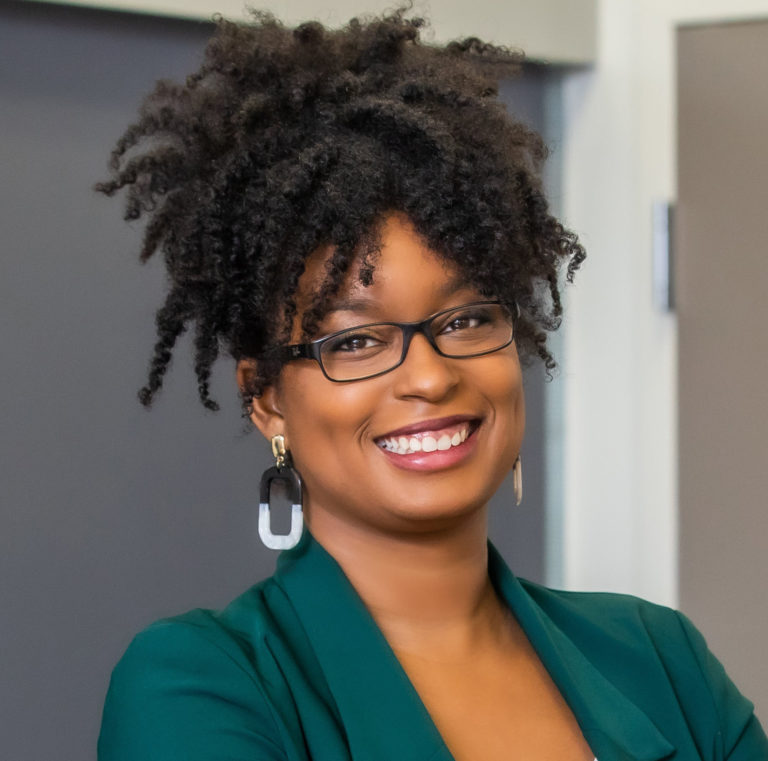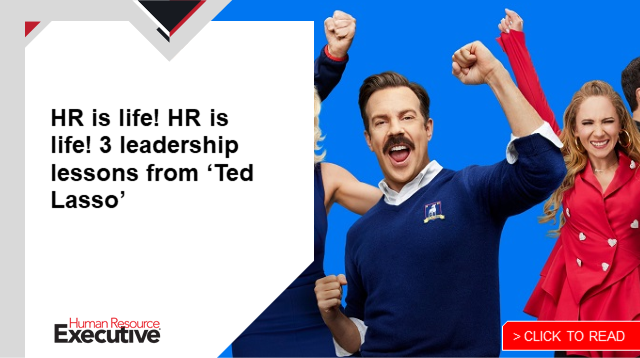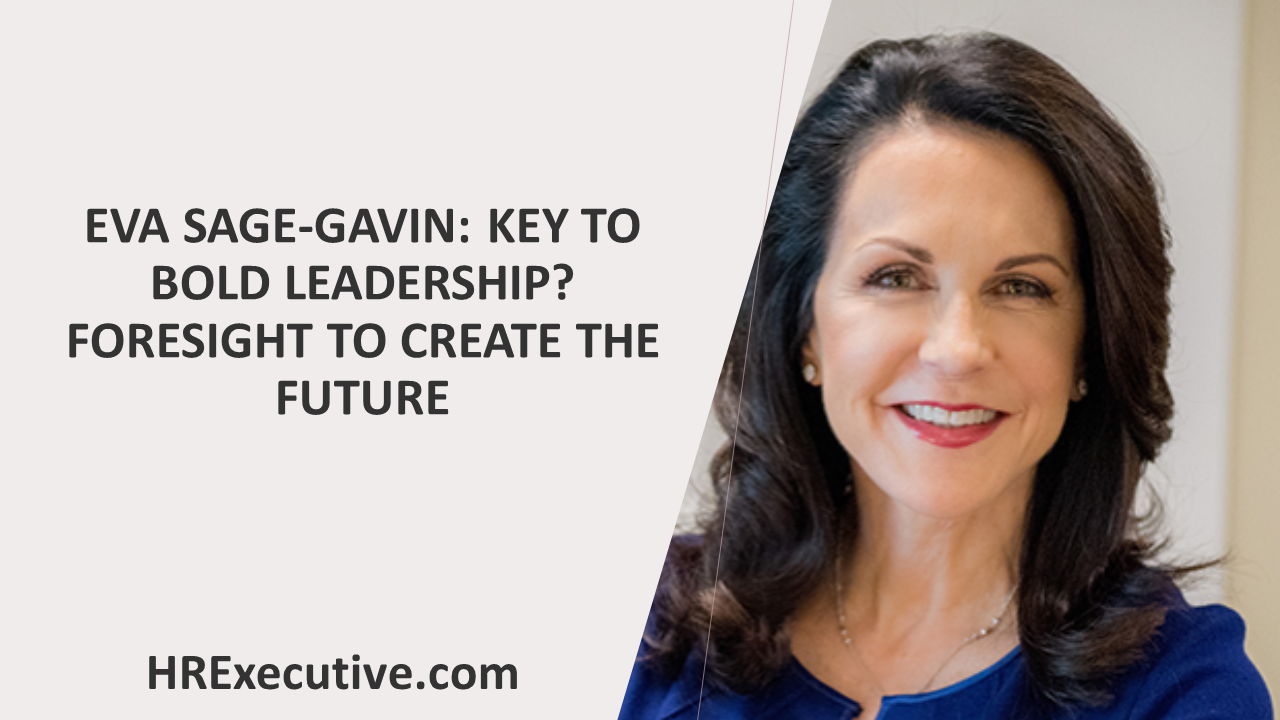In recent years, HR’s focus on diversity has expanded rapidly to include a number of related and equally important concepts–namely, equity, inclusion and belonging. For workplace technology provider Virgin Pulse, the work also includes another vital aspect: justice.
Justice has long been central to Dr. Marlette Jackson’s work. With an extensive background in consulting and previous DEI leadership positions at Stanford University’s School of Engineering and UT Southwest Medical Center, Jackson joined Virgin Pulse in February as its global director of justice, equity, diversity and inclusion. She since has focused on everything from ensuring employees have ample resources to manage the impact of social unrest on their personal and professional lives to educating the workforce on the intrinsic biases that permeate most workplaces, and on their role in rooting them out.
And, she says, her work is just getting started. Jackson recently shared with HRE where she plans to take the justice, equity, diversity and inclusion work at Virgin Pulse:
HRE: Your title at Virgin Pulse involves the word “justice.” What does that entail in your day-to-day work?

Dr. Marlette Jackson, Virgin Pulse
Jackson: At Virgin Pulse, we did an intentional rebranding at the start of my tenure with the organization. We call it JEDI instead of DEI–please don’t sue us, Lucas Films–and JEDI centers and grounds traditional diversity, equity and inclusion efforts in a framework that prioritizes structural and systemic change. In more practical terms, it’s the presence of systems and supports–your policies, your practices, your norms–that can work toward achieving fair treatment as well as equitable opportunity for people of all identities.
HRE: What are some of the policies, practices and norms that you’ve been focusing on?
Jackson: So, one policy we’re trying to integrate into the future of JEDI is performance evaluation. That’s one of the things one of our committees from the JEDI Council is working on–adding questions that signal to the organization that this work can’t be siloed. We all have to commit in order for it to be sustainable. And it’s an expectation that, within our own sphere of influence, we’re working to create more inclusive cultures and equitable opportunities.
Another policy we’re working toward is ensuring 100% of hiring managers who post job positions in 2022 enroll in mandatory hiring manager modules. Our global manager of Learning & Development, Dr. Conni Claflin, is leading that charge. One of the modules I’m consulting on is bias and hiring. It basically provides hiring managers with insights on how bias can show up in the job description phase, the interview phase, at the selection and debrief phase so we’re well aware and have strategies to mitigate for it.
See also: Hiring more employees of color isn’t your first step to diversity
In terms of practices, our JEDI training a big focus point for us. We have a training titled JEDI 102–which is social justice with a global lens. Since we’re a global company, we explore policies, practices and movements in Australia, Bosnia, the U.K. and the U.S. that inform the social justice issues of our times. We also do trainings on bias in performance management for managers, as well as manager training on how to help your employees cope with social unrest. We also provide financial support to social justice organizations. For example, during Juneteenth, we gave a financial donation to the Equal Justice Initiative and had a series of videos where some of our Black-identifying employees talked about what Juneteenth means to them.
 And finally, norms … We believe one of the biggest ways to usher culture change is to be intentional about the language we use. In my trainings, I talk about system-centered language–placing the onus of responsibility on the systems, not the people. This perspective, which I first learned about from Dr. Meag-gan O’Reilly, underscores the contextual nature of oppression, systems and processes rooted in power that affect populations. For example, instead of saying “slaves,” say “enslaved,” and instead of saying “minorities,” say “minoritized.” Another way we integrate social justice through norming is through our events: For Native American and Alaska Native Heritage Month, we had different events on social determinants of health for indigenous communities, as well as provided a timeline of social justice for Native American and Alaska native communities. We even instituted a “call to action” where we challenged Pulsers to donate their Pulse cash to charities that support indigenous communities.
And finally, norms … We believe one of the biggest ways to usher culture change is to be intentional about the language we use. In my trainings, I talk about system-centered language–placing the onus of responsibility on the systems, not the people. This perspective, which I first learned about from Dr. Meag-gan O’Reilly, underscores the contextual nature of oppression, systems and processes rooted in power that affect populations. For example, instead of saying “slaves,” say “enslaved,” and instead of saying “minorities,” say “minoritized.” Another way we integrate social justice through norming is through our events: For Native American and Alaska Native Heritage Month, we had different events on social determinants of health for indigenous communities, as well as provided a timeline of social justice for Native American and Alaska native communities. We even instituted a “call to action” where we challenged Pulsers to donate their Pulse cash to charities that support indigenous communities.
HRE: How did Virgin Pulse’s diversity and inclusion strategy change in the wake of the murder of George Floyd? And has it undergone further shifts?
Jackson: The George Floyd murder actually catalyzed Virgin Pulse into a more formalized DEI initiative. There had been some pre-existing grassroots efforts, like an informal employee impact group for women in sales but, after the murder, BERG–the Black ERG–formed, and our JEDI Council formed. Both those groups had very different origin and outcome stories. The folks who started BERG–namely, Jacquelynn Russell–didn’t ask; she just went ahead and created a group and they’d meet weekly and have conversations about what’s going on and also discuss professional development and mentorship opportunities. That resulted in several promotions for our Black staff–just from having that community and space. They’ve since changed their name to BOLD–Black Organizers, Leaders and Doers–and became Virgin Pulse’s first official employee impact group.
Our Live Services Group also started doing a lot of work around training, belonging and creating assets for our health coaches to navigate sensitive topics with our members. The JEDI Council also started during this time to provide organizational feedback and work on issues-based committees. It was through this process that Virgin Pulse hired a DEI consulting firm called Unsiloed, which held trainings, focus groups and discussions. One of the learnings from that report was that we needed a dedicated DEI resource, which is why they hired me. I came on in February of this year and have worked with the Employee Experience team to produce some exciting successes. Since February, we’ve had training attendance levels of over 650, event attendance levels over 760. We have 250 employees in different EIGs and, on average, 92% of respondents report that they feel more connected and engaged at Virgin Pulse because of our events.
Related: How to increase female leadership to help avoid gender blind spots
 In terms of what’s next, I tend to follow a model by Erby Foster, who is head of diversity and inclusion at Clorox, that identifies four phases of DEI. I believe firmly we’re in phase 1, which is cultural awareness; we have heritage month events, we’re starting to create EIGs. So, what I want to do is move us into phase 2 and phase 3, which is about talent development and building external alliances with other organizations.
In terms of what’s next, I tend to follow a model by Erby Foster, who is head of diversity and inclusion at Clorox, that identifies four phases of DEI. I believe firmly we’re in phase 1, which is cultural awareness; we have heritage month events, we’re starting to create EIGs. So, what I want to do is move us into phase 2 and phase 3, which is about talent development and building external alliances with other organizations.
HRE: You’ve written about the topic of “woke-washing.” Do you think we’ll continue to see employees feeling empowered to call out such instances, and what’s driving this trend?
Jackson: I do think we’ll see employees continuing to feel empowered to talk about these injustices. It was Victoria Russell [chief diversity and inclusion officer at Beam Suntory] who said, “People are starting to think more about their values than their value.” It’s more about your beliefs than the compensation you’re receiving. People are more willing to leave a company if that company doesn’t [see their value]–and they’re willing to tell folks on Twitter, too.
I think there’s also been a shift in perception of corporate responsibility. Traditionally, companies have not been expected to address the stress and fear their employees experience in times of social unrest. Some companies may believe these conversations have no place at work, while others are concerned with saying the wrong things. For several companies, they may want to make statements but don’t know where to start. Because the line between business and personal life is blurring, employers are starting to realize the issues that not only need to be addressed but acted on–and employees and consumers know that too. They’ve witnessed the power of people using their collective voice, and [employees] are going to continue to amplify it to achieve the goals of a more just and equitable society.
HRE: Health and wellbeing have been a particular focus of HR leaders over the last year-and-a-half, given the pandemic. How can HR leaders do a better job aligning their D&I and health/wellness strategies?
Jackson: The first thing to note is the DEI and health and wellbeing are inextricably linked–one cannot function properly without the other. Thinking about earlier this year, social unrest can affect employee mental health and workplace productivity. Researchers found police killings of an unarmed Black person can contribute to 1.7 additional poor mental health days for Black Americans every year. Also, research showed that anti-Asian hate crimes increased anxiety, depressive symptoms and sleep problems of those who were targeted. So, when we think about DEI and wellbeing, they’re definitely linked.
One thing organizations can do is to ensure the two functions are working together and strategically aligned. We have something called an on-site wellness coordinator, and I recently just started coordinating monthly meetings with her on what we do, ways we can collaborate, to discuss upcoming events. I provide her feedback from the JEDI lens on her content. She includes JEDI questions in her application process for folks doing some of her volunteer wellness work. She also supports the different employee impact groups and community groups I oversee.
See also: How Google is making DE&I more than a buzzword
It’s also about being intentional about the programs at the intersection of DEI and wellness. For example, we did this initiative called The Gathering Space. We invited Dr. Meag-gan O’Reilly to hold a month-long DEI wellness program for some of our Black-identifying employees earlier this year. She discussed everything from racial trauma to microaggressions to Black joy and Black resistance. They were really impactful sessions that were both empowering and also brave spaces for folks to be emotionally vulnerable and get the healing and guidance they needed. Dr. O’Reilly has unique training in DEI and psychology, so she was especially well-equipped to talk to us about how to navigate coping and thriving at the intersection between DEI, wellness and wellbeing. So, how can HR do a better job at aligning? It’s about being real about knowing what you don’t know. I’m a JEDI expert but I don’t have that psychology background that she does. Invite people who have that expertise and background–and pay them–to do that work.
HRE: What are you passionate about outside of work?
Jackson: JEDI work doesn’t end when I clock out of my 9 to 5 (which is more like 7 to 9). It’s part of who I am. In my free time, I enjoy volunteering for the First-Generation and/or Low-Income Alumni Network at my alma mater where I got my Ph.D., Stanford University. We host programs and events to amplify and celebrate the FLI–first-generation and low-income–identity and help young FLI alumni as they’re ushering into the world outside of college. We do everything from helping them understand stocks and bonds to health insurance premiums. I was just on a panel about buying your first home, where I received questions like, “What’s an HOA? What’s this 20% down thing?” We’re helping folks who may be class migrants like myself navigate outside of the academic world. I’m also extremely proud that I was just notified by Stanford that I won an award for my alumni volunteer work for FLI students. Class identification is something we don’t talk about enough in terms of DEI/JEDI work, but it deeply influences our worldview, so I’m very excited to see it coming more to the forefront.
I also love writing. I come from an academic background–I wrote a whole dissertation–so whenever I have time or the opportunity to write a thought leadership article, I leap at it because it’s what I’m passionate about. I remember my 3rd- and 4th-grade teacher, Ms. Spence, said, “I look forward to reading your book one day, Marlette,” and I haven’t gotten there yet, but that keeps me motivated for what’s next.